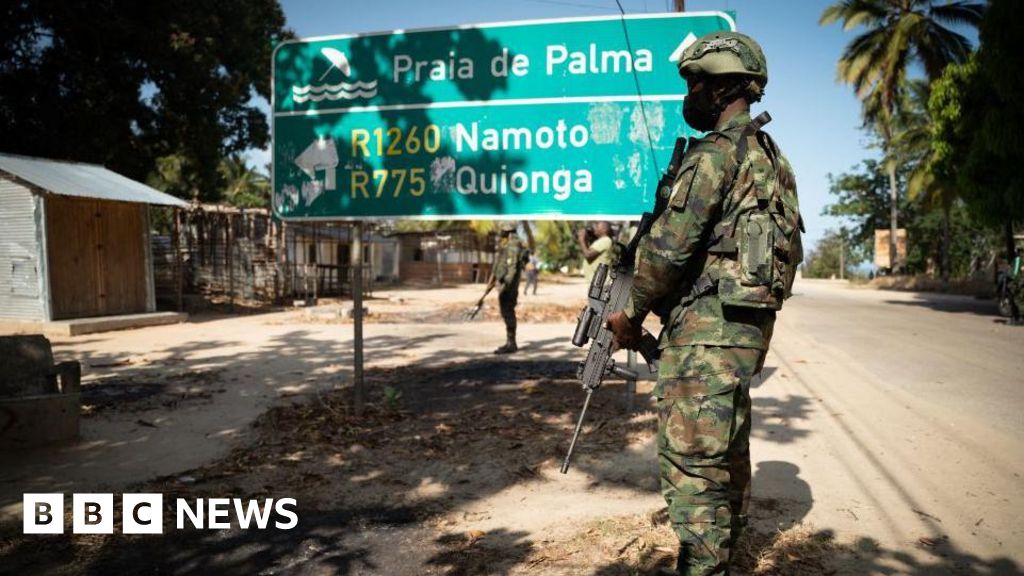TotalEnergies Faces War Crime Allegations Over Mozambique Massacre Near Multi-Billion Dollar Gas Project
 Mozambique
Human Rights
Mozambique
Human Rights

TotalEnergies faces war crime allegations from a human rights group over a 2021 massacre in Mozambique's Cabo Delgado province near its gas project.
TotalEnergies Accused of War Crimes in Mozambique Over 2021 Massacre
French energy giant TotalEnergies is currently embroiled in serious war crime allegations stemming from a 2021 massacre near its multi-billion dollar liquefied natural gas (LNG) project in northern Mozambique. A complaint, lodged with French prosecutors by the European Center for Constitutional and Human Rights (ECCHR), accuses TotalEnergies of complicity in heinous war crimes, including the torture and execution of dozens of civilians.
According to the human rights group, local security forces, who were guarding TotalEnergies' facility on the remote Afungi peninsula, allegedly held civilians in shipping containers before their deaths. TotalEnergies has consistently denied responsibility for the actions of government troops and associated security forces involved in safeguarding the massive gas refinery development, which was, at the time, the largest foreign investment project in Africa.
Context: Conflict in Cabo Delgado and Palma Attack
The context of these allegations is the volatile Cabo Delgado province, a resource-rich region where Mozambican forces have been locked in a brutal conflict with violent Islamist militants linked to the Islamic State group. These militants are known for their gruesome tactics, including beheadings. In March 2021, Islamists attacked the town of Palma, a community living adjacent to TotalEnergies' gas plant. Investigative journalist Alex Perry documented the terror, revealing that 1,563 civilians were killed or kidnapped during the Palma attack. Perry’s 2024 report for Politico further uncovered a subsequent reprisal massacre at the entrance to TotalEnergies' compound, labeling it the "bloodiest disaster in oil and gas history."
Locals who sought refuge or assistance from the forces at the TotalEnergies facility were reportedly accused of aiding insurgents. Men were forcibly separated and confined to shipping containers. While Perry identified 97 victims of the subsequent killings by Mozambican forces, he estimates the actual death toll could be double that figure. Perry expressed that "Today is a victory for truth, and accountability," highlighting that TotalEnergies has acknowledged none of these events.
Calls for Accountability and Financial Withdrawal
Clara Gonzales, co-programme director for business and human rights at the ECCHR, emphasized the responsibility of companies operating in conflict zones. "Companies and their executives are not neutral actors when they operate in conflict zones. If they enable or fuel crimes, they might be complicit and should be held accountable," she stated.
This controversy has sparked calls for action from various bodies. The British government, which initially offered financial guarantees for UK companies participating in the project, had suspended support after the Palma bloodshed. Now, environmental campaigners are urging Britain to permanently withdraw, stating that the gravity of the allegations against TotalEnergies must serve as a "red line" for the project's financial backers. Lorette Philippot of Friends of the Earth France criticized TotalEnergies for lifting the force majeure on its gas project despite the ongoing "dramatic security and humanitarian situation," urging the UK and Dutch governments, along with French banks like Société Générale and Crédit Agricole, to cease their financial support.
While supporters of the project argue it represents a bold investment capable of delivering significant economic benefits to a neglected African region, critics portray it as an environmental, ethical, and financial catastrophe. They draw parallels to another French company, Lafarge, which is currently on trial in France over allegations of paying jihadist groups in Syria to maintain cement plant operations.